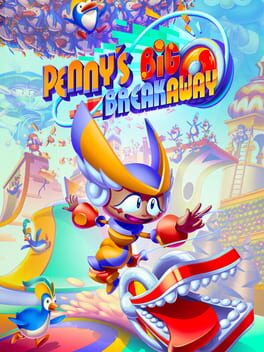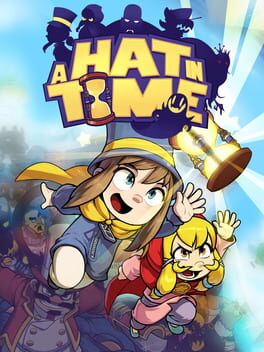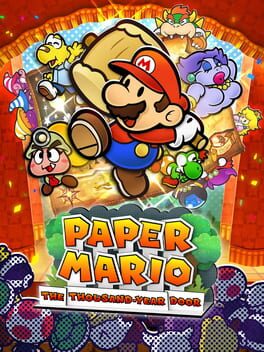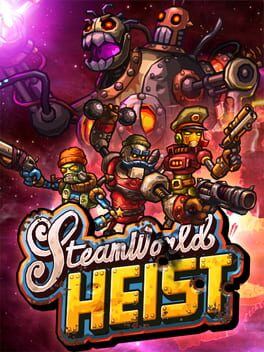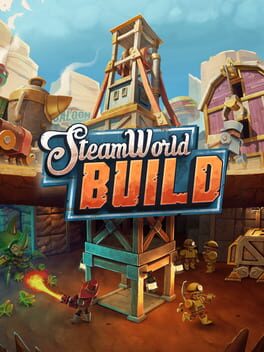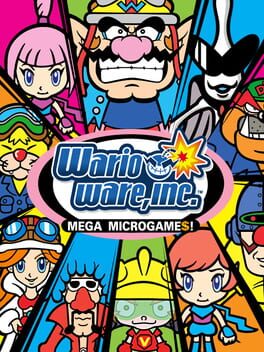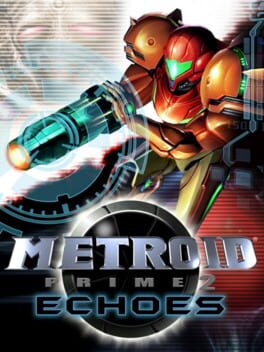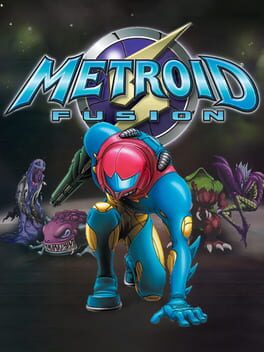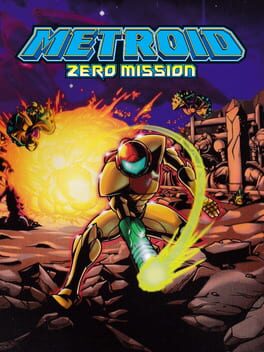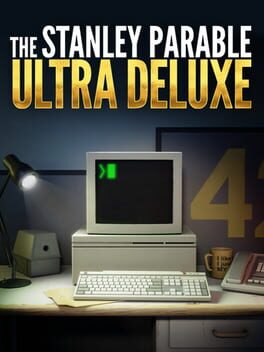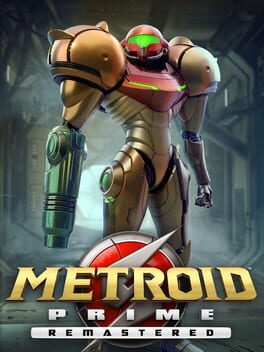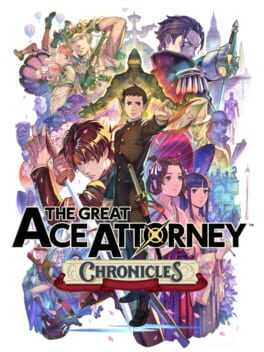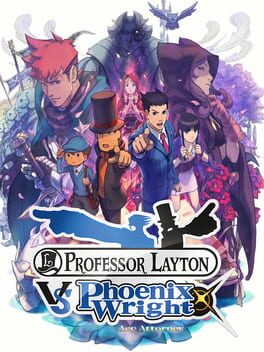geoWaffle
Despite the revival of 3D platormers over the last decade, it's rare to see a 3D platformer that actually feels like it's doing something majorly new or interesting. Penny's Big Breakaway is a rare exception that shows that there's still room to innovate, and still improvements to be made. You'll be thinking that last one especially often, as the game repeatedly breaks itself in half attempting the bare minimum of competent platformer controls.
Indeed, Penny's Big Breakway is as fun as it is broken, and those tend to be mutually exclusive experiences. The gameplay is an up-and down rollercoaster so violent it would put the Euthanasia Coaster to shame.
Indeed, Penny's Big Breakway is as fun as it is broken, and those tend to be mutually exclusive experiences. The gameplay is an up-and down rollercoaster so violent it would put the Euthanasia Coaster to shame.
2017
Borrowing a lot of ideas from classic 3D platformers like Psychonauts, A Hat in Time brings their wackier and zanier mechanics into a more polished and modern context by being very unpolished and deeply archaic. A lot of backtracking, finicky platforming, and time wasting will mar your gameplay experience in a way that makes you wonder if anything of real note has been improved upon since the late 90s and early 2000s.
I'm sorry to say that nothing has been improved. At the same time, though, very little charm has been lost in the process. Perhaps a little too late to the party and a little too unoriginal to reap the rewards, but A Hat in Time is still very, very charming.
I'm sorry to say that nothing has been improved. At the same time, though, very little charm has been lost in the process. Perhaps a little too late to the party and a little too unoriginal to reap the rewards, but A Hat in Time is still very, very charming.
This was my first time with The Thousand-Year door, and having beaten the sequel, Super Paper Mario, and thinking that it had an incredible story with so-so but nonetheless fun gameplay, I was very much hoping for an experience that could match incredible storytelling with an incredible gameplay experience. Super was, after all, infamous for radically altering the main gameplay of the Paper Mario series. Perhaps this game would be the perfection of the original formula, then?
The final result was a mixed bag, to say the least. I'll be brief and say that The Thousand-Year Door's story is pretty empty. A largely unremarkable roster of characters, plenty of plot threads that go nowhere or have poor conclusions, and a lot of obvious story padding drag the game down. In many moments its charming and witty writing save the day, but it's all too little and all too uncommon to put the game on the level of those that were inspired by it like Super Paper Mario and Undertale. In brief, every single instance of the game's best writing can be found, some way or another, in its hub-world Rogueport.
The next thing is the gameplay. I'll be brief and say that The Thousand-Year Door's combat is some of the best JRPG combat I've played in my life, if not THE best. Its mechanics are all incredibly well considered; with enough restraint to never overwhelm, but more than enough depth to top the often uninteresting battles of Paper Mario 64. It has to be seen to be believed; trust me.
But that's just one side of it. The other side is the world. I'll be brief and say that it has rare moments of fun surrounded by obvious and aggravating padding. This game has some of the most clear and egregious padding I've ever seen in a Mario game; one of the game's first "puzzles" puts you against an enemy that can only be beaten with a special item from a store. This tests your ability to backtrack through multiple rooms of respawning enemies just to go buy it, and then bring it back. The game's next "puzzle" is the exact same sequence literally verbatim. Entire chapters end up designed around this sort of thinking, and you can generally gauge how good a chapter is by how short its runtime is. The truth is that Paper Mario: The Thousand-Year Door is more interested in giving you busywork and sugarcoating it with charm to make the pill go down, than it is in actually creating a condensed experience that's worth playing from beginning to end.
In typical JRPG fashion, each chapter is structured around a new world and location for the player to learn and explore; with a new cast of characters whose problems are tied into the main plot. What makes the Paper Mario series special is that each of these chapters have at least one radical element that alters the fundamental way you progress. One chapter has you fight a tournament of villains to win the mcguffin, and another has you take a pleasant train ride to the mcguffin. These are usually half-baked. The tournament arc? That gets boring quick, and it ends without making good on all of its best promises. The murder mystery train one? That goes nowhere. The villain just shows up at the end with no explanation. That's sort of the opposite of how murder mysteries are supposed to work, if you think about it.
One of these diversions is actually really good and really clever (and also very brief), but I'll avoid spoiling it because it's worth that. The frustrating thing is that sometimes it really IS worth that sort of treatment! But those times are just all too rare, especially when compared to Super Paper Mario. Perhaps its unfair to compare a game to its sequel, but it really is a perfect example of how to do good by everything I think The Thousand-Year Door stumbles on. Not that that game is perfect either; it could've learned a few lessons from its predecessor, but nothing is ever as disappointing as it is here.
Anyway, these little problems ultimately don't matter in the end. Neither do any of the good things I had to say, either. The finale of this game is so terrible that it deserves special mention as one of the most painful and protracted things I've experienced in a video game. A lot of games shit the bed at the final stretch, and I'm disappointed to say that Paper Mario: The Thousand-Year Door is one of the reigning champions at the sport. If you're anything like me, you will not leave the game happy.
The game is an ultimately bumpy ride with some really good ideas that are executed far better in other places. Want to find a game better than The Thousand-Year Door? Look to the games that were inspired by it.
As for the quality of the remake, I really wouldn't know. The only thing I know is that a character that was originally supposed to be transgender is actually transgender in this version. That's cool, I guess. Not fixing the Palace of Shadow, though.
The final result was a mixed bag, to say the least. I'll be brief and say that The Thousand-Year Door's story is pretty empty. A largely unremarkable roster of characters, plenty of plot threads that go nowhere or have poor conclusions, and a lot of obvious story padding drag the game down. In many moments its charming and witty writing save the day, but it's all too little and all too uncommon to put the game on the level of those that were inspired by it like Super Paper Mario and Undertale. In brief, every single instance of the game's best writing can be found, some way or another, in its hub-world Rogueport.
The next thing is the gameplay. I'll be brief and say that The Thousand-Year Door's combat is some of the best JRPG combat I've played in my life, if not THE best. Its mechanics are all incredibly well considered; with enough restraint to never overwhelm, but more than enough depth to top the often uninteresting battles of Paper Mario 64. It has to be seen to be believed; trust me.
But that's just one side of it. The other side is the world. I'll be brief and say that it has rare moments of fun surrounded by obvious and aggravating padding. This game has some of the most clear and egregious padding I've ever seen in a Mario game; one of the game's first "puzzles" puts you against an enemy that can only be beaten with a special item from a store. This tests your ability to backtrack through multiple rooms of respawning enemies just to go buy it, and then bring it back. The game's next "puzzle" is the exact same sequence literally verbatim. Entire chapters end up designed around this sort of thinking, and you can generally gauge how good a chapter is by how short its runtime is. The truth is that Paper Mario: The Thousand-Year Door is more interested in giving you busywork and sugarcoating it with charm to make the pill go down, than it is in actually creating a condensed experience that's worth playing from beginning to end.
In typical JRPG fashion, each chapter is structured around a new world and location for the player to learn and explore; with a new cast of characters whose problems are tied into the main plot. What makes the Paper Mario series special is that each of these chapters have at least one radical element that alters the fundamental way you progress. One chapter has you fight a tournament of villains to win the mcguffin, and another has you take a pleasant train ride to the mcguffin. These are usually half-baked. The tournament arc? That gets boring quick, and it ends without making good on all of its best promises. The murder mystery train one? That goes nowhere. The villain just shows up at the end with no explanation. That's sort of the opposite of how murder mysteries are supposed to work, if you think about it.
One of these diversions is actually really good and really clever (and also very brief), but I'll avoid spoiling it because it's worth that. The frustrating thing is that sometimes it really IS worth that sort of treatment! But those times are just all too rare, especially when compared to Super Paper Mario. Perhaps its unfair to compare a game to its sequel, but it really is a perfect example of how to do good by everything I think The Thousand-Year Door stumbles on. Not that that game is perfect either; it could've learned a few lessons from its predecessor, but nothing is ever as disappointing as it is here.
Anyway, these little problems ultimately don't matter in the end. Neither do any of the good things I had to say, either. The finale of this game is so terrible that it deserves special mention as one of the most painful and protracted things I've experienced in a video game. A lot of games shit the bed at the final stretch, and I'm disappointed to say that Paper Mario: The Thousand-Year Door is one of the reigning champions at the sport. If you're anything like me, you will not leave the game happy.
The game is an ultimately bumpy ride with some really good ideas that are executed far better in other places. Want to find a game better than The Thousand-Year Door? Look to the games that were inspired by it.
As for the quality of the remake, I really wouldn't know. The only thing I know is that a character that was originally supposed to be transgender is actually transgender in this version. That's cool, I guess. Not fixing the Palace of Shadow, though.
2015
2023
WarioWare, Inc.: Mega Microgames! is still, to this day, potentially the best WarioWare game to be made.
With some of the most addictive content to grace thumbs worldwide, a style well ahead of its time, atmosphere unmatched by any entry afterwards, and a yet unbeaten lineup of microgames, WarioWare, Inc. is the only handheld game that truly justifies its form factor in every way.
With some of the most addictive content to grace thumbs worldwide, a style well ahead of its time, atmosphere unmatched by any entry afterwards, and a yet unbeaten lineup of microgames, WarioWare, Inc. is the only handheld game that truly justifies its form factor in every way.
With a story that's nothing to write home about, a total step down from its predecessor's weapon system, an infamously aggravating dual-world mechanic, and a terrible late-game fetch quest, you'd expect Metroid Prime 2: Echoes to be a game wholly not worth remembering or revisiting.
Call it style over substance, but an atmosphere as gripping as Metroid Prime 2's does not come along often.
Call it style over substance, but an atmosphere as gripping as Metroid Prime 2's does not come along often.
2002
For an NES game, Metroid Zero Mission is very impressive. As a GBA title, however, it doesn't always feel like it's playing to its own advantages. The addition of an epilogue doesn't do much to make the game feel more like a complete experience compared to its contemporaries at the time; rather, it simply extends the runtime without adding serious depth where the NES original needed it most.
However, the truth is that Metroid is still a great game, and modern players will appreciate the ways that Zero Mission makes the experience more comfortable, even if they ultimately fail to make the game more remarkable.
However, the truth is that Metroid is still a great game, and modern players will appreciate the ways that Zero Mission makes the experience more comfortable, even if they ultimately fail to make the game more remarkable.
2020
Cyberpunk 2077 is an incredibly well-crafted open world experience that will keep you mesmerised and gripped in its all-encompassing world and story from start to finish.
It's impressive to see that amount of sheer writing, designing, coding and voice talent poured into tackling the hot topic of the exact same transhumanist shit people have been tossing around since the 80s.
And all it took was grinding a few hundred workers into the floor! How restrained.
It's impressive to see that amount of sheer writing, designing, coding and voice talent poured into tackling the hot topic of the exact same transhumanist shit people have been tossing around since the 80s.
And all it took was grinding a few hundred workers into the floor! How restrained.
Metroid Prime has not aged a day. That is to say, Metroid Prime Remastered is just as annoying as Metroid Prime was in all the exact same places.
A complete lack of touch ups or re-works to the original in any significant manner may disappoint returning players (as it did me), but the truth is that Metroid Prime is still a contender for the best entry in the franchise, and possibly the greatest Metroidvania ever made. It shows absolute faith in the original product, and I believe that that was ultimately the right call.
A complete lack of touch ups or re-works to the original in any significant manner may disappoint returning players (as it did me), but the truth is that Metroid Prime is still a contender for the best entry in the franchise, and possibly the greatest Metroidvania ever made. It shows absolute faith in the original product, and I believe that that was ultimately the right call.
This is a top pick for the best entry in the Ace Attorney series. A refreshing new world, some very wise cherry-picking of the best gameplay ideas from the Professor Layton crossover, and some really fun characters build towards a highly engaging experience. You may find, though, that it ends without much of a good conclusion and with a million loose ends. Of course, this is because you have only just finished the first game in the collection.
The second game in the collection is a top pick for the most dull entries in the series. Lacking any new or interesting plot developments, characters, or gameplay mechanics, you will find that The Great Ace Attorney Chronicles gets boring about 30 hours in, and then continues for another 30 hours afterwards.
Drop it the moment it gets boring. It seems this game carried over more than just gameplay mechanics from Professor Layton Vs. Phoenix Wright.
The second game in the collection is a top pick for the most dull entries in the series. Lacking any new or interesting plot developments, characters, or gameplay mechanics, you will find that The Great Ace Attorney Chronicles gets boring about 30 hours in, and then continues for another 30 hours afterwards.
Drop it the moment it gets boring. It seems this game carried over more than just gameplay mechanics from Professor Layton Vs. Phoenix Wright.
The highly anticipated crossover between Professor Layton and Ace Attorney is, to put it nicely, a piss-poor Professor Layton game and an incredibly dull and drawn-out Ace Attorney game.
Despite some genuinely compelling spins on the style of both games, it's ultimately the plot and structure rather than the gameplay that sours the experience. A plot as long and convoluted as an Ace Attorney game with the awful contrivances and twists of a Professor Layton game? Pass.
Despite some genuinely compelling spins on the style of both games, it's ultimately the plot and structure rather than the gameplay that sours the experience. A plot as long and convoluted as an Ace Attorney game with the awful contrivances and twists of a Professor Layton game? Pass.
2012
